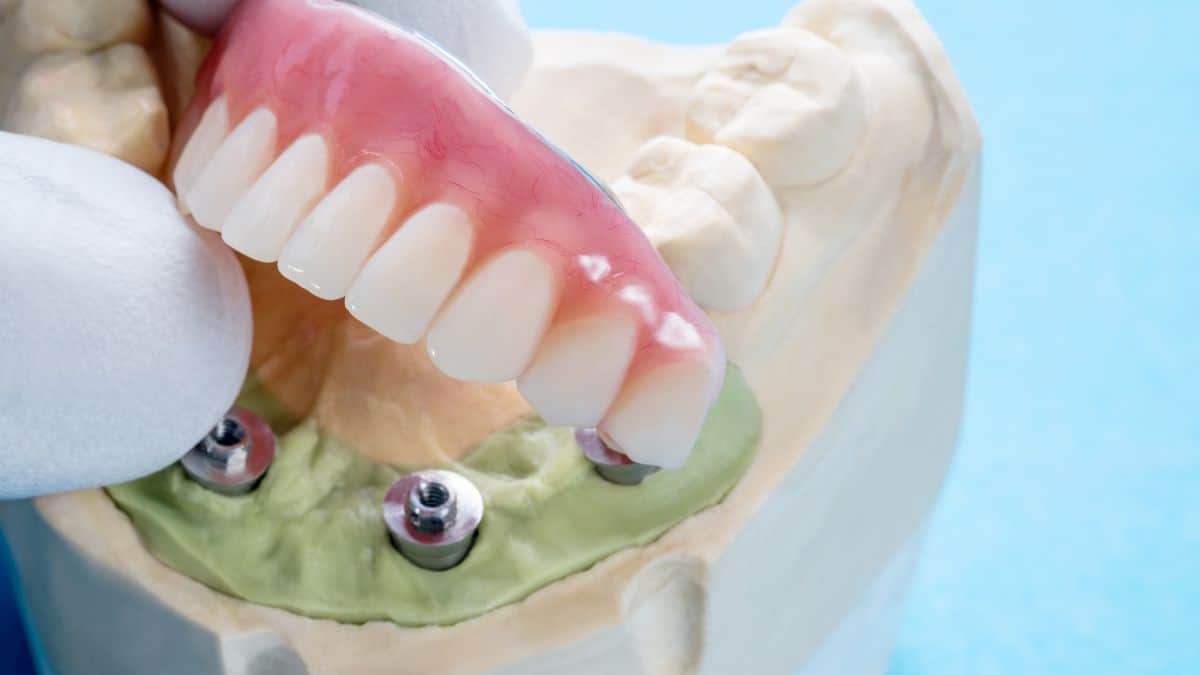What Are the Benefits of Dental Implants Over Dentures?

Dental implants have emerged as a highly favored solution for replacing missing teeth, offering many benefits over traditional dentures. With advancements in dental technology, the options for dental restorations have expanded, allowing more personalized and effective treatments for patients. Dental implants can provide a durable, stable, and aesthetically pleasing solution for many who suffer from tooth loss.
Read on to learn the benefits of dental implants over dentures.
Permanent Solution with Natural Feel
One of the primary advantages of dental implants over dentures is their permanence and stability. Implants are surgically placed into the jawbone, where they integrate with the bone over a few months in a process known as osseointegration. This integration helps the implant act like a natural tooth root, providing a stable foundation for artificial teeth.
Unlike dentures, which can slip or cause discomfort, implants do not move because they are anchored firmly. This stability helps with comfortable eating and speaking and feels more natural than dentures.
Preservation of Jawbone and Facial Structure
Traditional dentures do not stimulate the jawbone, leading to its gradual deterioration. This bone loss can significantly affect the overall facial structure, giving the cheeks and mouth a sunken appearance. In contrast, dental implants mimic natural tooth roots, transferring the normal chewing force directly into the jawbone. This stimulation promotes bone growth and maintenance, which is critical for preserving the jawbone’s density and the face’s natural contour.
Thus, implants can help maintain a youthful facial structure and prevent premature aging, often seen with long-term denture use.
Enhanced Comfort and Confidence
Dental implants provide a level of comfort that dentures cannot match. Fixed directly into the jawbone, implants eliminate the discomfort and instability associated with traditional dentures, such as gum irritation and the potential for the dentures to slip while eating or talking. This stability significantly enhances the wearer’s comfort, allowing them to enjoy a varied diet without worry and speak or laugh without fearing their teeth moving out of place.
As a result, dental implants can dramatically boost the user’s confidence and quality of life, as they know their dental prosthetics are securely anchored.
Improved Oral Health
Dental implants offer substantial benefits for oral health compared to traditional dentures. Unlike dentures, which may require the alteration of adjacent healthy teeth to anchor bridges, implants do not compromise the integrity of surrounding teeth. This standalone feature significantly reduces the risk of damaging neighboring teeth and promotes a healthier oral environment.
Additionally, the care regimen for implants is straightforward, mirroring natural teeth cleaning practices, including brushing and flossing. This ease of maintenance prevents bacteria and plaque buildup, thus reducing the risk of gum disease and other oral health issues stemming from poorly maintained dentures.
Longevity and Cost-Effectiveness
Initially, dental implants may seem more expensive than dentures, but their longevity and minimal maintenance make them a more cost-effective option over time. Implants are designed to last a lifetime with proper care, while dentures typically require replacement every 5 to 7 years due to wear and fit issues.
Furthermore, the reduced need for repairs and adjustments with implants can lead to lower long-term dental costs. Lastly, the benefits of improved health, comfort, and aesthetics often justify the upfront investment in implants, making them a prudent long-term financial decision for tooth replacement.
Versatility in Replacement Options
Dental implants are remarkably versatile, catering to various replacement needs. Whether it’s a single tooth, several teeth, or an entire arch, implants can be individually tailored to fit the specific requirements of each patient. This flexibility allows for targeted treatment, from minor corrections to major reconstructions. The ability to customize the scope of dental implant use makes them a suitable option for various dental conditions and enhances their appeal as a comprehensive solution for tooth loss.
However, if you are wondering how many dental implants can you have, the answer varies based on individual needs and conditions of the jawbone. But implants can be tailored to meet the needs of nearly any situation where tooth replacement is needed.
Conclusion
Dental implants provide numerous advantages over traditional dentures, including enhanced comfort, improved oral health, and a natural appearance. They offer a permanent solution that helps preserve the jawbone and facial structure, enhancing the overall quality of life for individuals who choose them. For anyone considering options for tooth replacement, dental implants represent a robust, long-term investment in one’s dental health and well-being. With their proven success rate and the endorsement of dental professionals worldwide, dental implants continue to be the gold standard in tooth replacement therapy.




